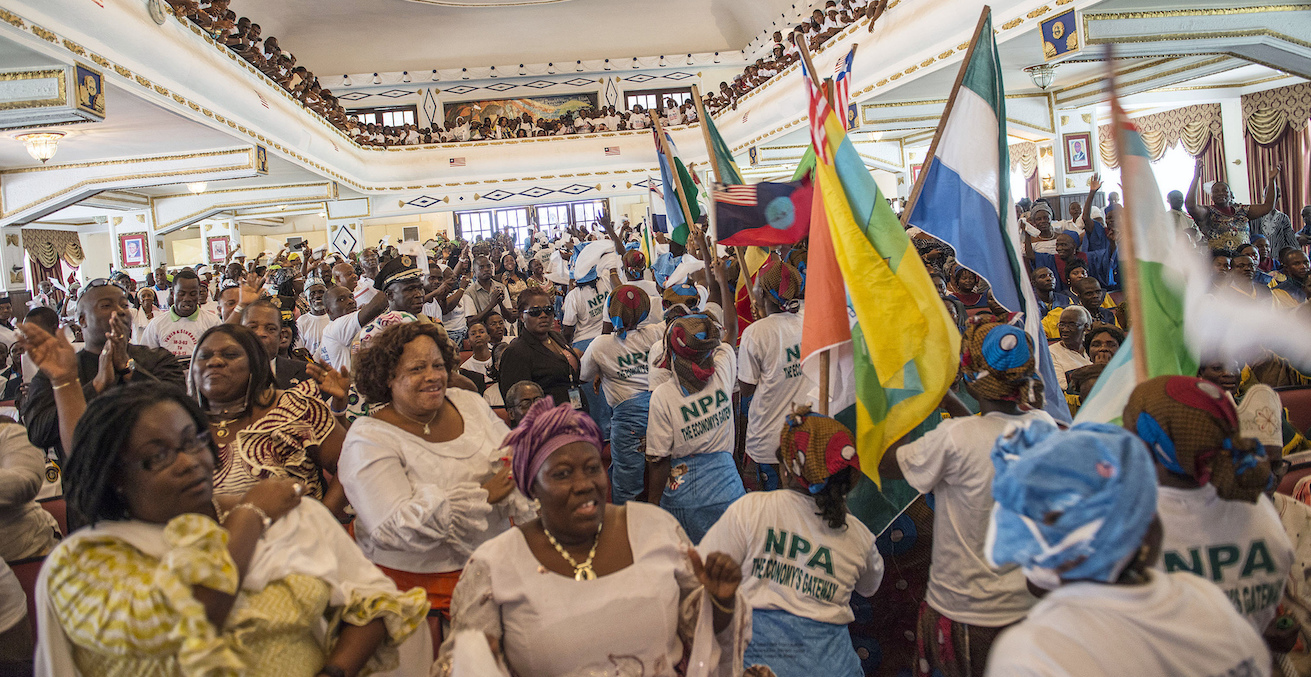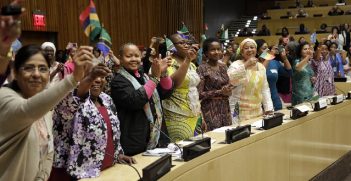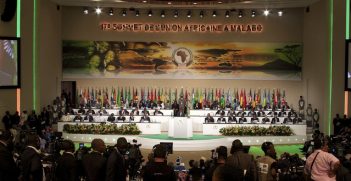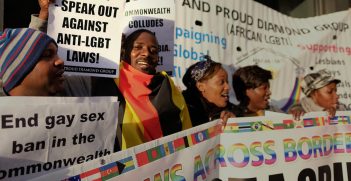Transforming Conflict in Liberia

As we approach the 15th anniversary of the Liberian Peace Agreement, the African nation begins to heal longstanding divisions.
On 18 August 2003, after 76 days of drawn-out negotiations, the main warring parties in Liberia’s civil war signed a comprehensive peace agreement. It ended the conflict that left an estimated 250,000 people dead and one million displaced, and helped set the conditions to begin securing peace. The agreement included provisions for a ceasefire, the deployment of an international stabilisation force, security and governance reforms, a human rights and truth and reconciliation commission, and a transitional government.
As Liberia commences the 15th year since the agreement, it is an important time to reflect on the significant progress made, and analyse the challenges that remain. For a country that has undergone an estimated 90 wars since the 1820s, an ongoing transformation of the drivers of the conflict is required to ensure the fragile gains are lasting. More work is needed to heal longstanding divisions, to ensure all Liberians benefit from its resources and have access to justice, and to halt sexual- and gender-based violence.
Transforming relationships
Historical tensions, compounded by decades of political exclusion, led to deep fractures throughout Liberian society and fighting between a plethora of warring factions and militias. A priority for Liberia has been bridging these social cleavages that were exacerbated during the war.
A key initiative to address these was the establishment of a Truth and Reconciliation Commission (TRC), which contributed to an improvement in tribal relations. During a national survey, only 4 per cent said “ethnic divisions or tribal violence” were a source of insecurity. However, the UN has recognised some inter-ethnic divides remain and there have been reports of sporadic violence between ethnic groups.
Of concern, some recommendations in the TRC remain unrealised, and the passage of legislation to promote reconciliation has been slow. It is essential to continue efforts to address the historical tensions between groups dating back to Liberia’s founding. This includes ensuring legislation is passed in a timely manner, nationwide dialogue on the war and its root causes, and greater outreach to ensure the TRC findings are accessible and implemented swiftly.
Transforming structures
The Liberian government has sought to restore good governance through constitutional and legislative reform to address corruption, protect specific groups and reform the security sector. Despite these steps, there has been slow progress in implementing a governance reform agenda with a local government bill and a land rights bill (aimed at improving self governance and the distribution of resources) still pending.
There has also been uneven impact as the presence of justice and security institutions remain limited outside the capital. It will be essential for the Liberian government to hasten passage of constitutional and institutional reforms to build trust with its people, and to develop national institutions that are inclusive, accountable and responsive.
There has been significant progress in terms of security, even following the transition of security responsibilities from the UN to Liberian authorities. Liberia conducted peaceful elections in 2005 and 2011. The 2017 elections will be a test, as it will be the first presidential election when Liberia has sole responsibility for its security.
Reforms of the security sector should continue as reports indicate that Liberian security forces face “difficulty in being seen as neutral or objective”. It will be key to strengthen the police so it can manage threats at the community level and increase transparency and accountability to build trust.
Liberian President Johnson Sirleaf has focused heavily on economic growth to help transform the socio-economic drivers of the conflict. She negotiated significant debt relief, drove economic growth and secured significant foreign investment. Despite these impressive results, Liberia still has tremendous development needs and the level of inequality is particularly acute between the capital and the rest of the country. When surveyed in 2011, the most pressing concerns for Liberians were access to services and economic opportunities.
Land ownership and management is seen as one of the current potential triggers for conflict. While a land commission was established in 2009, there are funding challenges. The government should focus on full implementation of its poverty reduction strategy, with a focus on reducing the chronic socioeconomic disparities, especially in rural areas, and prioritise passage of funding for the land authority.
Transforming culture
Liberia has made progress uprooting a culture of impunity and rebuilding constructive mechanisms for conflict resolution, such as through investments to strengthen the court system. That being said, the UN reports that there remains an “outdated legal framework, poor oversight, weak administrative procedures and limited human and institutional capacity”. Focused attention is required on implementing the steps outlined in Agenda 2030 to “build the effectiveness and integrity of legal institutions to increase equitable access to justice and to strengthen the rule of law”.
One of the most interesting areas has been the role of women. On the one hand, the Liberian peace process highlights the benefits of women playing a transformational role in peacebuilding. Women helped bring key parties to the peace negotiations, and assisted in the disarmament process. President Ellen Johnson Sirleaf (Africa’s first elected woman head of state and winner of the 2011 Nobel Peace Prize) furthered the involvement of women in peacebuilding by installing women into top posts in her government, and implementing policy instruments on gender.
At the same time, however, Liberian women still face various human rights abuses. To broaden the positive progress, it will be essential to enhance efforts to combat sexual- and gender-based violence, including by combating impunity, providing support to victims and running public information campaigns.
Liberia has progressed significantly since 2003 as the root causes of the decades of conflict have begun to be transformed. Violent clashes are no longer a daily feature of Liberian society, and ethnic tensions and socio-economic inequalities have reduced. The role of women has also partly been transformed with many playing a significant role in the peacebuilding process—an example for other post-conflict situations. But much remains to be done, including reinvigorating national reconciliation processes and hastening the passage of governance reforms for inclusive and responsive institutions.
Steps should be taken to strengthening capability and transparency of the security sector, including to manage local issues. In implementing the poverty reduction strategy, there should be a focus on reducing rural inequality and land reform. Efforts must also continue to build the integrity of institutions to increase access to justice and strengthen the rule of law, and to combat sexual- and gender-based violence.
These steps will be essential as Liberia prepares for its third national elections since the civil war in October. As Johnson Sirleaf has announced she will be stepping down, it will mark the first transfer of democratic power to a new administration, which will test the resiliency of Liberia’s institutions and governance.
The work of the UN Peacebuilding Commission, which has developed a comprehensive peacebuilding plan to support Liberia through this transition, will be paramount to help ensure the fragile gains are lasting. Global attention will no doubt be drawn to Liberia during this critical phase. It will be important for the international community to distill lessons from Liberia’s journey to transform the drivers of conflict, with particular attention to the transformational role women can play.
Mikaela James is studying for a Master of Defence and Security Management at UNSW Canberra, where she has focused on post-conflict reconstruction. She has a bachelor of international studies and received first class honours for her analysis of the stabilisation mission in the Solomon Islands.
This article is published under a Creative Commons Licence and may be republished with attribution.





